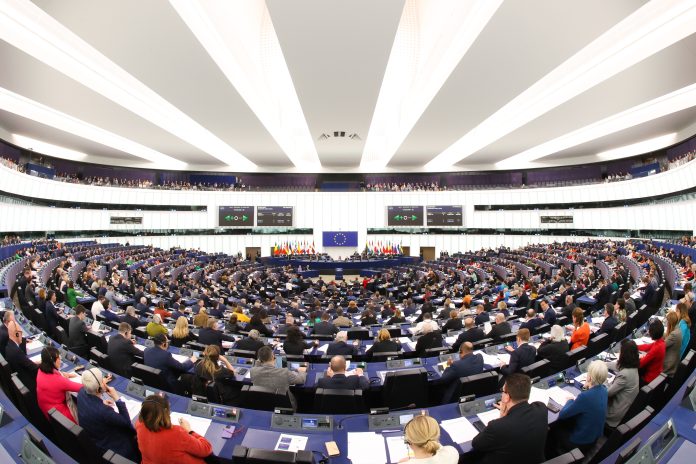Ahead of a Commission proposal, expected later this year, on further EU sources of income, MEPs assess the revenue side of the EU budget and advocate several new “own resources”.
In a draft resolution adopted on Monday by 28 against 5 and 4 abstentions, Budget committee members offer an assessment of the reform process so far under the “roadmap for the introduction of new own resources” saying that “EU finances are going through a critical period where a lack of reform would have highly detrimental effects on the future the European Union, its policies, objectives and the trust of Europeans and investors in the Union.”
New challenges put the EU budget under heavy strain
MEPs are “highly worried” that the amounts generated by the new own resources will not be sufficient to cover all “Next Generation EU” (NGEU) recovery repayments and borrowing costs, estimated to at least €15 billion EUR per year until 2058 on average.
The economic and social shock of Russia’s invasion of Ukraine, the heavy impact of inflation on the EU budget and the rising global race to shape the future of clean energy technology manufacturing are additional challenges which underline the need to reassess the EU system of own resources.
Fresh ideas for additional revenue sources
As the EU budget will have to pay back debt incurred under the EU recovery plan without jeopardising investments and other EU programmes, MEPs propose an array of new sources of income for the EU budget, including corporate tax-based own resources, the financial transaction tax, a new fair border mechanism, a tax on crypto-assets, green own resources and national contributions based on statistics.
The Commission has already proposed a first batch of new own resources in 2021. The MEPs call on the Commission to come forward with the next batch of proposals “as soon as possible and no later than the third quarter of 2023.”
Fiscal legitimacy must be ensured by elected representatives
The members of the Committee on Budgets consider that the European Parliament should play an enhanced role in the decision-making process for own resources “to ensure the visibility, legitimacy and democratic accountability of EU public finances.”
Co-rapporteur José Manuel Fernandes (EPP, PT): “We need new ways of financing the Union’s budget, that are both environmentally friendly and promote fair and just competition, ensure competitiveness and do not overburden taxpayers. This basket of new own resources must be sufficient to pay the EU’s debt incurred by the Recovery Fund without cutting back on policies and programmes.”
Co-rapporteur Valérie Hayer (RENEW, FR): “From a tax on cryptocurrencies to a new fair border mechanism, this report is paving the way towards a new Europe. It’s time to get off the beaten track. New innovative own resources are needed to reach a sufficient amount to repay the joint borrowing for the recovery, but also to make full use of our EU budget to complement our policies.”
The full house will vote on the resolution during the May plenary session in Strasbourg.
In 2020, along with the current long-term EU budget (multi-annual financial framework 2021-2027), the EU institutions agreed on a legally binding roadmap introducing new sources of EU revenue. On that basis, the plastics own resource, introduced in 2021, was the first new source of EU revenue since 1988. End of 2021, the Commission proposed three further own resources, on which Parliament has positioned itself in November 2022 but which the member states have not yet adopted. The Commission has confirmed that it will, as agreed in the roadmap, propose another basket of new own resources still this year, earlier than stipulated in the roadmap.

